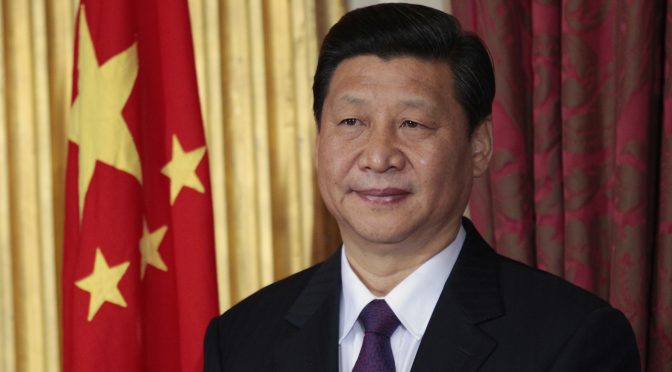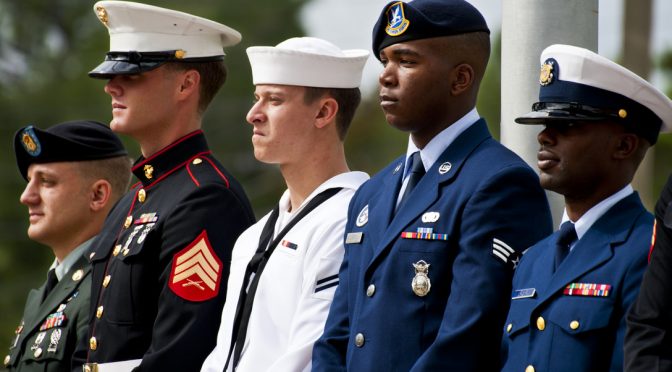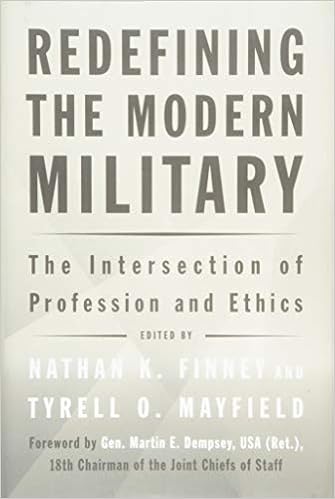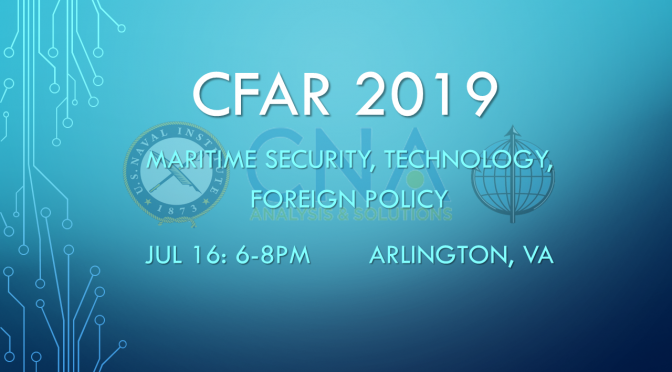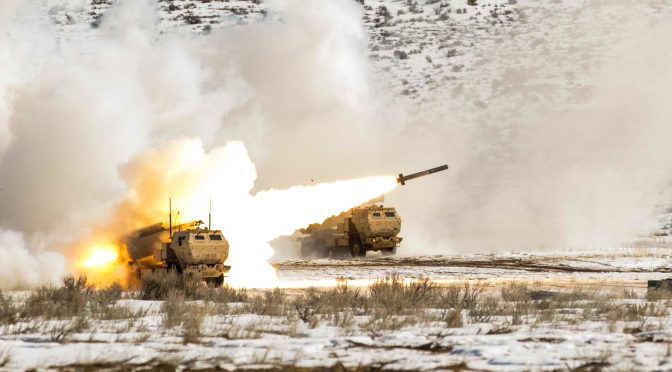This article originally featured on China Leadership Monitor and is republished with permission. It originally published under the title, “A Tale of Three Speeches: How Xi’s Speech Marking the 40th Anniversary of Reform and Opening Differs from those of Jiang Zemin and Hu Jintao.” Read it in its original form here.
By Minxin Pei
Xi Jinping’s speech marking the 40th anniversary of reform and opening on December 18, 2018 recapitulates the substantial ideological and policy changes he has initiated since coming to power in late 2012. A comparison of this speech with speeches by Jiang Zemin and Hu Jintao on the 20th and 30th anniversary of reform and opening respectively reveals significant differences in terms of ideological rhetoric and substantive policy issues. Whereas the speeches by Jiang and Hu adhere to the basic ideological and policy guidelines established by Deng Xiaoping, Xi Jinping’s speech underscores his personal authority and political vision. Most significantly, Xi’s speech emphasizes the supremacy of Communist Party centralized and unified strongman rule and China’s bold and expansive role in international affairs. The uncompromising tone of his speech suggests that it is unlikely that Xi will make substantial changes to his domestic and foreign policies despite the strong headwinds both domestically and internationally.
Parsing speeches by top Chinese leaders for clues about their ideological leanings and policy preferences recalls the now much-derided Kremlinology. The torrent of information pouring out of China in the post-Mao reform era casts doubts about the utility of textual analysis. Yet, as the Chinese Communist Party (CCP) under General Secretary Xi Jinping increases the intensity of its control over the flow of information, scrutiny of the language in pronouncements by the top leaders is likely to provide useful insights into their ideological mindsets and policy priorities
The speech delivered by General Secretary Xi Jinping on December 18, 2018, commemorating the 40th anniversary of the Third Plenum of the 11th CCP Congress, is a case in point.1 During the six years since becoming party leader, Xi has instituted radical policy changes affecting the distribution of power, security for ruling elites, ideology, state-society relations, and foreign policy. An implicit rule of Chinese politics is that such changes must be elevated to a new political narrative and accorded fresh ideological legitimacy in a carefully crafted political speech delivered on a key occasion, such as a national CCP congress or an anniversary of a major historic event. The political symbolism and substance of Xi’s speech marking the 40th anniversary of reform and opening cannot be overstated. Jiang Zemin and Hu Jintao, Xi’s two immediate predecessors, also delivered highly publicized speeches celebrating, respectively, the 20th and 30th anniversary of the historic Third Plenum of the 11th CCP Congress.
On the surface, these anniversary speeches may not appear to be fertile ground for mining evidence of the differences between the ideas and policies of successive top leaders during the post-Deng era. However, despite their dry language, they nevertheless yield useful clues about the personal, ideological, and policy differences among different generations of top leaders because such high-profile anniversary speeches are drafted by an assigned writing team and typically undergo several revisions to ensure that the speeches both fully and accurately reflect the thinking of the top leadership. The final draft is reviewed, edited, and approved by the top leader himself.
In the following pages, we will dissect the rhetorical and substantive differences between Xi’s speech on December 18th and the speeches by Jiang Zemin and Hu Jintao on similar occasions in 1998 and 2008.2 We first examine the subtle differences in their references to key terms and in their phraseology to both describe past policies and leaders and to spell out the party’s bottom-line positions on reform. We then focus on the noteworthy differences in the policy statements contained in these speeches. Specifically, such statements are included in the section devoted to “lessons learned” from the previous decades. In reality, these lessons, typically numbering about ten points, not only summarize the leader’s own interpretation of the achievements of the previous decades but also describe the guiding principles for future domestic and foreign policies. We conclude with an analysis of the implications of the observed differences between Xi’s speech and those of his two predecessors.
Rhetorical Differences
High-profile speeches by top leaders follow implicit rhetorical rules. In particular, they are supposed to make obligatory references to the official ideology and the past leaders and their achievements. The CCP’s fundamental political principles and policies, such as those expressed in 1979 by Deng Xiaoping (the so-called four “cardinal principles”), must also be reiterated.3 On the whole, the rhetoric in the three speeches under examination may not seem significantly different in these respects. Nevertheless, we can still detect subtle and non-trivial rhetorical differences that indicate how Xi Jinping regards his own status in the pantheon of CCP leaders.
Despite the obligatory nature of such references, the frequency of invoking the orthodox Communist ideology as well as previous Chinese leaders and their ideological doctrines can serve as a useful proxy for the degree of ideological legitimacy the present leader attaches to the orthodox ideology and to his predecessors. A speaker who believes that his policies are more faithful to the orthodox ideology and to the doctrines of his predecessors will more frequently refer to the said ideology, doctrine, and leader. When there are fewer such references, the speaker is generally less ideologically beholden to former doctrines and leaders. It is also reasonable to assume that the leader who makes the least number of references to his predecessors is implicitly hoping to highlight his own status and contributions.
Based on this assumption, an examination of the number of references to Marxism-Leninism, Mao, and Deng Xiaoping in the three speeches under examination would reveal substantial differences in how Jiang, Hu, and Xi perceived their ideological faithfulness. Of the three speeches, each leader made about the same number of references to Mao (four for Jiang, and five each for Hu and Xi). This may suggest that all three leaders were aware of the potential political peril of excessive references and homage to Mao’s ideas and legacy. Nevertheless, a close reading of the assessment of Mao in the three speeches reveals subtle and important differences between Xi and his two predecessors.
In the speeches by Jiang and Hu, the assessments of Mao’s contributions are almost identical—both brief and even perfunctory. There is no hint of rethinking the Maoist legacy. By comparison, Xi’s speech represents perhaps the most important—and positive -—revision of Mao’s legacy. Xi not only devotes more space (one long paragraph) to describe Mao’s achievements but also adds key terms to put a positive spin on the disastrous Maoist period. The most notable section reads, “In the process of exploration, despite serious detours, the party gained unique and original theoretical results and monumental achievements, providing precious experience, theoretical preparations, and material foundations for creating Chinese-style socialism in the near historic era.” (在探索过程中,虽然经历了严重曲折,但党在社会主义革命和建设中取得的独创性理论成果和巨大成就,为在新的历史时期开创中国特色社会主义提供了宝贵经验、理论准备、物质基础).4 Critically, Xi’s speech portrays the Maoist period positively as a “process of exploration” — a far cry from the phrase “the decade of calamities” (十年浩劫) that the party usually uses to describe the Cultural Revolution. Additionally, by linking the “theoretical” and “material” achievements of the Maoist period to the “new historic era,” Xi’s speech endorses the view that the Maoist period and the post-Maoist period are inseparable and cannot be used to “negate one another,” a point that Xi first advanced in January 2013.5
In terms of references to Marxism-Leninism, Hu’s speech contains the most references to Marxism-Leninism (24), whereas Jiang and Xi invoke Marxism-Leninism ten times and eight times, respectively. As for Deng, Jiang makes 18 references to him whereas Hu and Xi refer to him eight and six times respectively. These notable differences in invocating the sources of ideological legitimacy and inspiration may be interpreted as Jiang’s desire to be seen as Deng’s faithful heir whereas Hu may have been seeking to present himself as a more faithful adherent to orthodox Marxism-Leninism. In the case of Xi, he appears to be far more confident in presenting himself as a leader less dependent on the traditional sources of ideological legitimacy.
Xi’s efforts to set himself apart from his two immediate predecessors are also apparent in other parts of his speech. For example, norms of modesty and political constraints probably prevented Jiang and Hu from lauding the achievements of their first terms, as there exist no such references. But Xi’s speech contains a long section listing the accomplishments of his first term. A rhetorical deference to the previous leaders is notably different as well. Both Jiang and Hu specifically salute the achievements of their immediate predecessors.6 In contrast, Xi does not salute the achievements under Hu’s leadership. In referring to previous leaders, both Jiang and Hu use two key phrases, “collective leadership” (集体领导) and “as its core” (核心) to describe their predecessors. Xi replaces “as its core” with “as its main representative” (为主要代表) when referring to Mao, Deng, Jiang, and Hu. The key phrase “collective leadership” has completely disappeared from Xi’s speech.
These rhetorical changes were evidently designed to signal Xi’s power and status. Because the official Chinese media never drops the phrase “as its core” when describing Xi’s position in the party, any removal of this phrase from descriptions of his predecessors may suggest that Xi occupies a truly unique position. The elimination of the phrase “collective leadership” from his speech also underscores today’s political reality of strongman rule at the apex of party leadership today.
Substantive Differences
Xi’s speech also differs from those by Jiang and Hu on key ideological and policy issues.
1. Interpreting the past and setting the direction for the future
In the second half of the anniversary speech, each leader lists the most important policies pursued by the party and credit these policies with bringing about the achievements of the prior decades. A quick examination shows how Xi differs from his predecessors in this regard. Jiang and Hu credit the same principle—Marxism-Leninism—as the most important factor contributing to the party’s accomplishments. In contrast, Xi singles out the supremacy of the party and “centralized unified leadership of the party” (党的集中统一领导) as the most important factors, relegating Marxism-Leninism to third place.7 Whereas Jiang and Hu focus on the application of Marxism-Leninism to China’s reality, in a full paragraph Xi amplifies the supremacy of the party. In this paragraph, which sets the direction “for the road ahead” (前进道路上), Xi emphasizes “we must strengthen the “four consciousness” and “four self-confidence” and “resolutely safeguard the authority and centralized leadership” firm adherence to the party center’s authority and centralized unified leadership”—code words demanding loyalty to his leadership (two of the four types of “consciousness” are “consciousness of the rules and consciousness of compliance.8 Since “firm adherence to the authority of the party center and to centralized unified leadership” clearly implies loyalty to Xi, the elevation of centralized personal leadership to the top political principles is a significant departure from the collective leadership under Jiang and Hu. Notably, Xi appears to justify centralized personal leadership by invoking the dangers lurking in the future. In the same paragraph, he warns that there “will certainly be various risks and challenges, even an encounter with perilous storms” (惊涛骇浪)—a phrase that has led many analysts to wonder about his meaning.9
We can also gain a better understanding of Xi’s emphasis on the supremacy of the party by comparing how his speech treats the sensitive topic of political reform limits. In the speeches by Jiang and Hu marking the anniversary of reform and opening, the two Chinese leaders pay only lip service to reform of the political system (政治体制改革), a task initially introduced by Deng in the early 1980s. Jiang devotes a full paragraph to political reform and declares that the party will “actively, gradually, and appropriately promote” such a reform. One key lesson or successful policy listed in Hu’s speech is the “combination of promotion of economic foundations and reform of the super-structure and the continuous promotion of reform of the political system.”
Remarkably, in Xi’s speech, the key phrase, “political system reform,” appears only once—in the section summarizing the achievements of the past four decades. In the most important section listing the key policies contributing to the party’s success and the guiding principles for the future, not only does the phrase “political system reform” completely disappear but there is also no equivalent section dealing with any future reform of key political institutions.
Equally remarkable is Xi’s emphatic statement on the boundaries of reform. To be sure, both Jiang and Hu set such boundaries in their speeches. Comparatively, however, Jiang uses the least harsh language to spell out what kinds of reforms the party will tolerate. He insists that the party will not “shaken, weaken, or discard” (动摇,削弱和丢掉) these reforms at any time; we must adhere to “socialist democratic politics with Chinese characteristics,” and not copy “the mode of the West’s political system should not be copied” (照搬西方的政治制度模式). In Hu’s speech, the language setting the boundaries of reform seems harsher as he describes a reform path that will result in a fundamental change in the party’s status and as an” evil path toward replacing flags” (改旗易帜的邪路), even though he balances this language with a declaration that the party will not return to a path of self-imposed isolation and ossification (封闭僵化的老路).10
In the first section of Xi’s speech summarizing the party’s past successes, he repeats Hu’s language about not returning to a path of isolation and ossification or embarking on an evil path leading to a loss of power. More notably, in spelling out the future direction in the same section, he presents the clearest marker about what can and what cannot be reformed . In answering his own question of “what changed, how to change” must be based on “how to reform the socialist system with Chinese characteristics.” Xi declares: “We will resolutely reform what should and can be reformed, but we will resolutely not reform what should not be and cannot be reformed” (该改的、能改的我们坚决改,不该改的、不能改的坚决不改).11
2. Definition of Chinese socialism today
Since the CCP’s 13th Congress in 1987, arguably the most liberal congress in CCP history, the party has defined Chinese socialism as the “initial stage of socialism.” Jiang Zemin’s 1998 speech emphasizes that “China today is and will for a long time continue to be at the initial stage of socialism” (当今中国还处在并将长期处在社会主义初级阶段). Hu Jintao’s speech ten years later reiterates this line and elaborates on its meaning—as long as China remains at the initial stage of socialism, it will prioritize economic development, maintain reform and opening, and focus on domestic priorities.12 Significantly, in Xi Jinping’s speech the “initial stage of socialism” is formally replaced by “socialism with Chinese characteristics for a new era” (新时代中国特色社会主义).13 This semantic change, easy to miss, has profound ideological and policy implications. Ideologically, it authorizes Xi’s political vision and ideas, now collectively known as “the thought on socialism with Chinese characteristics for a new era” (新时代中国特色社会主义思想), with the status of the party’s new guiding principles. Substantively, this new formulation also justifies Xi’ vision of China as a great world power and his ambitious foreign-policy agenda. Although his anniversary speech does not elaborate on this vision, it is fully developed in his political report to the CCP’s 19th Congress in late 2017. The overall task of this “new era,” as Xi declares in his political report, is to “realize socialist modernization and the great rejuvenation of the Chinese nation and . . . build a . . . great modern socialist country.”14 The most important policy implication in the difference between the “initial stage” and the “new era” is that China will have a new objective—seeking to be a global superpower.
3. Foreign policy and relations with the outside world
Probably the most notable policy difference between Xi’s speech and those of his predecessors is his foreign-policy vision. In both tone and substance, Jiang’s speech reiterates the well-known foreign-policy guidelines established by Deng. A subtle but significant deviation from Deng’s foreign policy can already be detected in Hu’s speech, which contains code language indicating a more defiant stance toward the United States, but by and large Hu remains defensive and cautious in nature. In comparison, Xi’s speech unambiguously demonstrates a far more ambitious and proactive foreign policy, representing a fundamental departure from the foreign policy enunciated by Jiang some twenty years earlier.
For example, Jiang emphasizes that “The primary task of our external work is for peace and to serve socialist modernization” (我们对外工作的首要任务,就是争取和平,为社会主义现代化建设服务). Jiang then practically repeats Deng’s foreign policy dicta— when “handling international affairs, it is essential to adhere to the principle of observing things soberly, dealing with problems calmly, doing what ought to be done, and never meeting them head-on so that we can seize opportunities to develop ourselves, accomplish the work at home” (坚持按照冷静观察、沉着应付、有所作为、决不当头的方针处理国际事务,以利抓住时机发展自己,把国内的事情办好). Hu attempts to strike a balance between adhering to the Dengist principle of subordinating foreign policy to domestic development and extending Chinese external influence as Chinese power and interests had greatly expanded since 1998.15 Hu calls to “make all-round plans for the overall domestic and international situations” (统筹好国内国际两个大局) and he adds a coded language suggesting a more assertive foreign policy aimed at challenging American unipolarity. Hu’s foreign-policy objectives include to ”actively promote world multipolarization, promote democratization in international relations, respect variety in the world, and oppose hegemonism and power politics” (积极促进世界多极化、推进国际关系民主化,尊重世界多样性,反对霸权主义和强权政治). Compared with Jiang’s speech, which contains only the code phrase “opposition to hegemonism,” Hu’s speech presents a substantive departure from the Dengist foreign policy. Nevertheless, the tone and content of Hu’s foreign-policy principles and objectives are defensive and do not indicate an expansive vision for future Chinese foreign policy.
The second half of Xi Jinping’s speech includes a section dealing with foreign policy. This section indicates how much has changed in the Chinese foreign-policy vision and objectives during the two decades since Jiang’s speech. It is difficult to detect traces of Deng’s foreign-policy principles. In setting China’s foreign-policy course, Xi reiterates some of Hu’s coded language, but he is much more emphatic. He declares that: “We must respect the right to choose the path of development of peoples, the maintenance of international fairness and justice, promote the democratization of international relations, against his own will on others, oppose interference in other countries’ internal affairs, against bullying” (我们要尊重各国人民自主选择发展道路的权利,维护国际公平正义,倡导国际关系民主化,反对把自己的意志强加于人,反对干涉别国内政,反对以强凌弱). The most striking part in this section is Xi’s unequivocal endorsement of a bold vision of China’s international role in general and of a long-term objective to reshape international relations. As a “responsible great power,” China will “play the role of a responsible big country, support of the majority of developing countries, and actively participate in the global governance system reform and construction” (支持广大发展中国家发展,积极参与全球治理体系改革和建设). He further stresses the long-term strategic importance of his signature program, the Belt and Road Initiative (BRI). According to Xi, China … “will use the BRI as a major foundation of its new foreign policy to create, with others, a new platform of international cooperation” (我们要以共建 “一带一路” 为重点,同各方一道打造国际合作新平台).16
So What?
What do these observed and, in most cases, significant differences tell us about Xi’s ideological and policy preferences and agenda?
For starters, this comparative exercise illustrates the nature and pace of changes in political vision and policy during the last two decades. If there are subtle but real differences in Hu’s speech as compared to Jiang’s, the differences are largely evolutionary in nature. But the same cannot be said of Xi’s speech, which represents a radical departure from the speeches by his predecessors in terms of both tone and substance. For those familiar with the speaking styles of the three leaders, it is not difficult to notice that whereas the speeches by Jiang and Hu appear to be mainly the work of writing teams, Xi’s speech bears his own rhetorical identifiers and personal touches, in particular the use of direct quotes and classical idioms as well as the choice of poetic and lofty language.
What this may imply is that, taken as a whole, Xi’s speech should leave no doubt that the radical transformation of the Chinese political system from collective leadership to strongman rule and the resultant policy changes are here to stay. We can further note that Jiang and Hu presented their respective speeches under far more favorable domestic and international circumstances, whereas Xi delivered his speech amid mounting domestic challenges and a fundamentally different external environment—the raging trade war and a possible cold war with the United States. The firmness of Xi’s tone and the reiteration of his signature policies indicate a low probability of a fundamental policy shift in Beijing despite growing doubts about the sustainability of the current path.
Minxin Pei, editor of China Leadership Monitor, is Tom and Margot Pritzker ’72 Professor of Government and director of the Keck Center for International and Strategic Studies at Claremont McKenna College. He is also non-resident senior fellow at the German Marshall Fund of the United States. Pei has published in Foreign Affairs, Foreign Policy, The New York Times, the Financial Times, the Wall Street Journal, Project Syndicate, Fortune.com, Nikkei Asian Review, and many scholarly journals and edited volumes. He is the author of China’s Crony Capitalism: The Dynamics of Regime Decay (Harvard, 2016); China’s Trapped Transition: The Limits of Developmental Autocracy (Harvard, 2006), and From Reform to Revolution: The Demise of Communism in China and the Soviet Union (Harvard, 1994). Pei formerly was senior associate at the Carnegie Endowment for International Peace (1999–2009) and assistant professor of politics at Princeton University (1992–1998). He currently holds the Library of Congress Chair in U.S.-China Relations.
Notes
[1]习近平:在庆祝改革开放40周年大会上的讲话, December 18, 2018, at
http://www.xinhuanet.com/politics/leaders/2018-12/18/c_1123872025.htm
[2] Jiang and Hu’s speeches can be accessed at the following links: Jiang Zemin, November 7, 2008, at http://theory.people.com.cn/GB/40557/138172/138173/8302188.html; Hu Jintao, December 18, 2008, at
http://www.chinanews.com/gn/news/2008/12-18/1492872.shtml
[3] The four cardinal principles established by Deng are “uphold the socialist path, uphold the people’s democratic dictatorship, uphold the leadership of the Chinese Communist Party, and uphold Mao Zedong Thought and Marxism-Leninism.”
[4] The official translation is “In the exploration process, although experienced serious twists and turns, but the original party theoretical results achieved in socialist revolution and construction and great achievements, and creating socialism with Chinese characteristics in the new historical period has provided valuable experience, theoretical preparation, substance basis.” Because official translation is often awkward and even inaccurate or incomplete, I use my own translation in the main text where I believe the official translation is wrong or inaccurate, but I will note the official translation in the endnote. This will apply to all the translations in this essay.
[5] 中国共产党新闻网, 习近平“两个不能否定”是实现“中国梦”的科学论断, May 10, 201e, at
http://cpc.people.com.cn/n/2013/0510/c241220-21441140.html
[6] Jiang also said: “We deeply miss Comrade Deng Xiaoping, the chief architect of our country’s reform, opening, and modernization” (我们深切怀念我国改革开放和现代化建设的总设计师邓小平同志). But this sentence is missing from the official translation.
Hu said: “We must extend a lofty salute to the party’s third-generation central leadership collective with Comrade Jiang Zemin as the core” (我们要向以江泽民同志为核心的党的第三代中央领导集体致以崇高的敬意).
[7] The official translation of (党的集中统一领导) is “the Party’s centralized leadership.”
[8] The original Chinese phrases describing the four types of “consciousness” are政治意识、大局意识、核心意识、看齐意识 (consciousness of social responsibility, consciousness of rules, consciousness of dedication, and consciousness of integrity; the four types of self-confidence (中国特色社会主义道路自信、理论自信、制度自信、文化自信) can be translated as self-confidence in the socialist path with Chinese characteristics, self-confidence in the theoretical systemic regime, and self-confidence in the culture.
[9] The official translation of this section is “the future will certainly face the challenges of this kind of risk, even unimaginable encounter stormy sea”
[10] The official translation is :rigid and doctrinaire” for 改旗易帜的邪路 and “the old path of developing a closed country” for 封闭僵化的老路.
[11] The official translation appears to make no sense since it reads “We can change the resolute reform, reform should not be reform determined not to change.”
[12] Hu’s language is: “我们党作出我国仍处于并将长期处于社会主义初级阶段的科学论断,形成了党在社会主义初级阶段的基本路线,这就是:领导和团结全国各族人民,以经济建设为中心,坚持四项基本原则,坚持改革开放,自力更生,艰苦创业,为把我国建设成为富强民主文明和谐的社会主义现代化国家而奋斗.”
[13] It should be noted that in his political report to the 19th CCP Congress in October 2017, Xi Jinping appeared to be advancing his concept of a “new era” without completely jettisoning the established party line on “the initial stage.” After describing what the “new era” means, Xi mentions the “initial stage” by noting that “the basic dimension of the Chinese context—that our country is still and will long remain in the primary stage of socialism—has not changed” (我国仍处于并将长期处于社会主义初级阶段的基本国情没有变). However, in his speech on December 18, 2018, Xi does not repeat the latter language. 习近平在中国共产党第十九次全国代表大会上的报告, October 27, 2017, at
http://www.xinhuanet.com//politics/19cpcnc/2017-10/27/c_1121867529.htm
[14] “总任务是实现社会主义现代化和中华民族伟大复兴,在全面建成小康社会的基础上,分两步走在本世纪中叶建成富强民主文明和谐美丽的社会主义现代化强国,” ibid.
[15] Chinese GDP, which was less than 12 percent of U.S. GDP in dollar terms in 1998, was approaching 40 percent of U.S. GDP in 2008. More importantly, the global financial crisis of 2008 appeared to offer Beijing a golden opportunity to play a more activist role in international affairs.
[16] Intriguingly, the official translation omits this section about BRI “We will use the BRI as a major foundation of its new foreign policy to create, with others, a new platform of international cooperation” (我们要以共建 “一带一路” 为重点,同各方一道打造国际合作新平台).
Featured Image: China Vice-President Xi Jinping stands during a trade agreement ceremony between the two countries at Dublin Castle in Dublin, Ireland February 19, 2012. (Reuters/David Moir)

